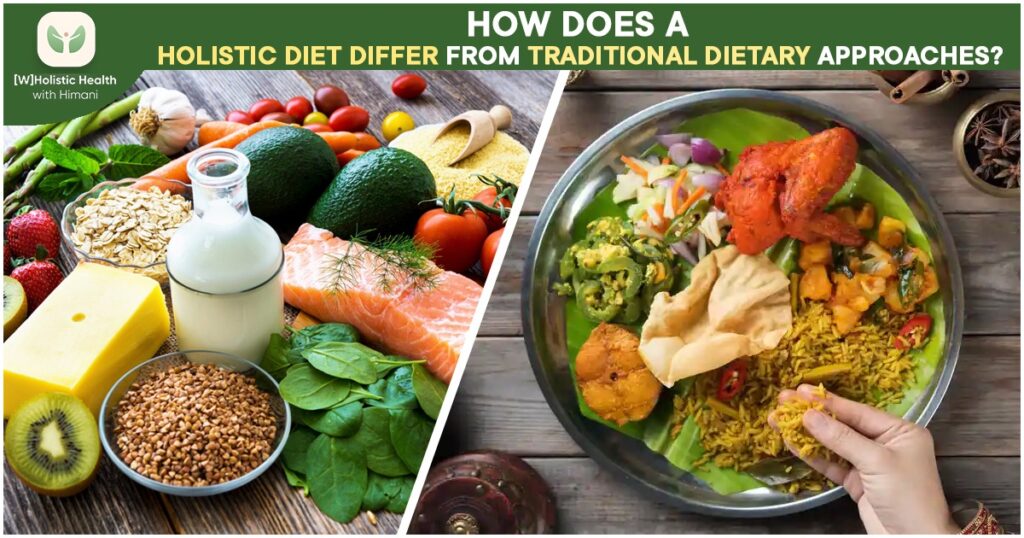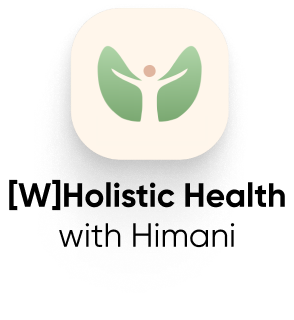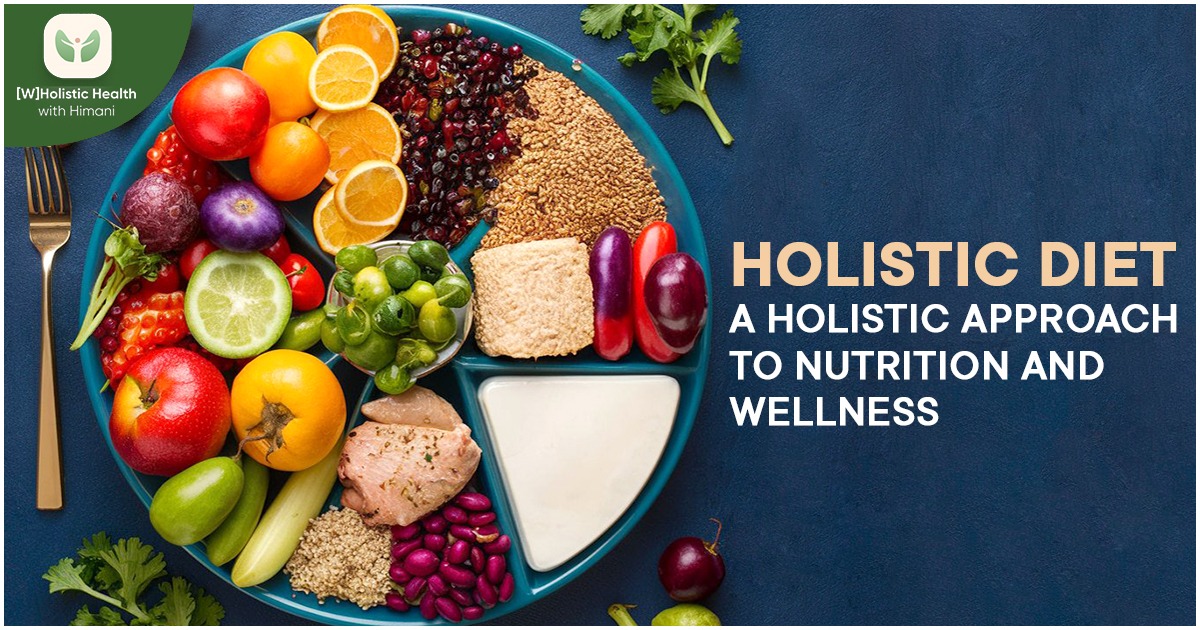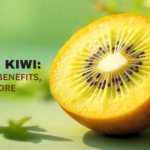A holistic diet represents a revolutionary approach to nutrition that transcends traditional dietary guidelines. Unlike conventional eating plans focusing solely on calorie intake or weight management, a holistic diet considers the entire human experience.
Rooted in the principle of whole-person wellness, this nutritional strategy integrates physical, mental, and spiritual health through mindful food choices. According to research from the Integrative Nutrition Department at Columbia University, holistic diets recognize that food is not just fuel but a powerful tool for comprehensive health optimization.
Table of Contents
ToggleWhy Should You Consider a Holistic Approach to Nutrition?
The benefits of a holistic diet extend far beyond simple nutritional intake. Multiple scientific studies have demonstrated profound impacts on overall well-being. A landmark study published in the Journal of Nutritional Health revealed that individuals practicing holistic dietary approaches experienced significant improvements in multiple health markers.
Check Out Our 3R Program
These include reduced inflammation, enhanced metabolic function, and improved immune system responses. Moreover, psychological research from Stanford University’s Nutrition Psychology Lab indicates that holistic diets can substantially reduce anxiety, stabilize mood, and improve cognitive function.

How Does a Holistic Diet Differ from Traditional Dietary Approaches?
Unlike restrictive diet plans, a holistic approach emphasizes personalization and whole-person nutrition. The University of California’s Nutritional Science Department highlights that individual metabolic differences require tailored nutritional strategies. This means moving beyond generic meal plans and understanding that each person’s body has unique nutritional requirements. Genetic factors, lifestyle, stress levels, and individual health conditions are crucial in determining optimal nutrition.
Read More: Overnight Oats: The Ultimate Guide to a Nutritional Breakfast
What Foods Are Essential in a Holistic Diet?
The foundation of a holistic diet lies in whole, unprocessed foods that are nutrient-dense and free from additives. These include:
- Whole grains: Quinoa, brown rice, and millet offer sustained energy and essential nutrients.
- Plant-based proteins: Lentils, chickpeas, and hemp seeds are rich in amino acids and fiber.
- Superfoods: Ingredients like turmeric, ginger, and ashwagandha provide anti-inflammatory and adaptogenic properties.
- Fruits and vegetables: A colorful variety ensures a robust intake of vitamins, minerals, and antioxidants.
- Healthy fats: Avocados, nuts, seeds, and olive oil support brain and heart health.
The Harvard School of Public Health emphasizes that these foods provide optimal nutrition while reducing exposure to potentially harmful additives in processed items.
How Can You Practice Mindful Eating?
Mindful eating is a critical component of holistic nutrition. This approach goes beyond simply consuming food and focuses on creating a conscious, intentional relationship with nutrition. Yale University’s Nutritional Psychology Department discovered that intuitive eating practices can reduce emotional eating by nearly 45% and improve body image. Techniques include eating slowly, engaging all senses during meals, practicing gratitude before eating and listening to the body’s genuine hunger and fullness cues.
What Nutritional Balance Should You Aim For?
Achieving nutritional balance requires a comprehensive understanding of macro and micronutrient needs. Johns Hopkins University nutritional research recommends a balanced approach that includes diverse food groups, ensuring adequate intake of proteins, complex carbohydrates, healthy fats, vitamins, and minerals. The goal is not restriction but optimization, focusing on nutrient-dense foods that support overall health and well-being.
Read More: The Science of Coffee and Weight Loss: Your Ultimate Guide
How Can a Holistic Diet Support Different Life Stages?
One of the most powerful aspects of a holistic diet is its adaptability to different life stages:
- Pregnancy: Focus on folate-rich foods, omega-3s, and iron to support fetal development.
- Childhood: Emphasis on calcium, protein, and whole grains for growth and cognitive development.
- Adulthood: Balance macro- and micronutrients to maintain energy and manage stress.
- Aging: Incorporate antioxidant-rich foods to combat oxidative stress and support cognitive health.
Recognizing evolving nutritional needs allows individuals to thrive throughout their lives.
What Are the Long-Term Benefits of a Holistic Dietary Approach?
Beyond immediate health improvements, a holistic diet offers long-term wellness benefits. Consistent research demonstrates reduced risk of chronic diseases, improved mental health, enhanced energy levels, and a more profound connection between nutrition and overall life quality. Individuals can transform their relationship with nutrition by viewing food as medicine and fuel for total body wellness.
How Can You Detoxify and Cleanse Your Body Through Nutrition?
Detoxification is a critical aspect of holistic nutrition beyond trendy cleanse programs. According to the National Institutes of Health, the body’s natural detoxification systems primarily rely on the liver, kidneys, and digestive tract. A holistic approach supports these organs through strategic nutritional choices. Cruciferous vegetables like broccoli and kale enhance liver function, while foods rich in antioxidants help neutralize harmful free radicals. Probiotics and fermented foods are crucial to gut health, supporting the body’s natural detoxification processes.
Key detoxifying foods include:
- Milk thistle: Supports liver regeneration
- Dandelion greens: Enhances liver and kidney function
- Cilantro: Helps remove heavy metals
- Chlorella: Binds and eliminates toxins
- Garlic: Activates liver enzymes
What Role Does Nutrition Play in Managing Chronic Conditions?
Holistic nutrition offers a powerful approach to managing chronic health challenges. Research from the Mayo Clinic demonstrates that targeted nutritional strategies can significantly impact inflammatory conditions, digestive disorders, and hormonal imbalances. An anti-inflammatory diet rich in omega-3 fatty acids, antioxidants, and plant-based foods can provide substantial relief for individuals with chronic inflammation.
Nutritional strategies for specific conditions:
- Digestive Health: Incorporate probiotic-rich foods
- Hormone Balance: Include adaptogenic herbs
- Stress Management: Focus on nutrient-dense, mood-supporting foods
- Sleep Quality: Prioritize magnesium and tryptophan-rich foods
How Can You Sustain a Holistic Diet in a Modern Lifestyle?
Practical implementation is crucial for long-term success. The American Dietetic Association recommends a gradual approach to dietary transformation. Meal planning, batch cooking, and understanding nutritional basics can make holistic eating more accessible. Budget-conscious strategies include:
- Buying seasonal produce
- Purchasing bulk whole grains
- Growing personal herb gardens
- Choosing frozen fruits and vegetables
- Utilizing local farmers’ markets
What Are the Ethical Considerations of a Holistic Diet?
Sustainability extends beyond personal health. A holistic approach considers environmental impact, ethical food sourcing, and global nutrition. Research from the United Nations Food and Agriculture Organization highlights the importance of:
- Supporting local agriculture
- Reducing food waste
- Choosing sustainably sourced proteins
- Minimizing carbon footprint through food choices
- Supporting Fair Trade Practices
How Does Nutrition Impact Mental Health and Cognitive Function?
The gut-brain connection reveals profound links between nutrition and mental well-being. A groundbreaking study from the University of California, Los Angeles (UCLA) found that:
- Gut microbiome directly influences mood
- Certain nutrients support neural health
- Inflammatory foods can negatively impact mental clarity
- Omega-3 fatty acids play a crucial role in brain function
Brain-boosting nutritional recommendations:
- Consume fatty fish rich in omega-3s
- Include nuts and seeds
- Prioritize complex carbohydrates
- Stay hydrated
- Limit processed sugar intake
What Are the Challenges in Adopting a Holistic Diet?
Transitioning to a holistic diet isn’t without obstacles. Common challenges include:
- Social pressures
- Limited time for meal preparation
- Conflicting nutritional information
- Budget constraints
- Lack of nutritional education
Strategies to overcome these challenges:
- Start with small, incremental changes
- Educate yourself continuously
- Seek support from nutritional professionals
- Practice self-compassion
- Focus on progress, not perfection
Conclusion: Embracing a Holistic Approach to Nutrition
A holistic diet is more than a temporary eating plan—it’s a comprehensive lifestyle approach to wellness. Individuals can transform their relationship with food by understanding the intricate connections between nutrition, mental health, environmental sustainability, and personal well-being. The journey toward holistic nutrition is deeply personal, requiring patience, curiosity, and a commitment to self-care.

I’m Himani, a Singapore-based health coach certified by IIN. I help clients create personalized nutrition and lifestyle plans that lead to lasting health goals. By focusing on individual needs, I provide actionable steps to support your journey to optimal well-being











